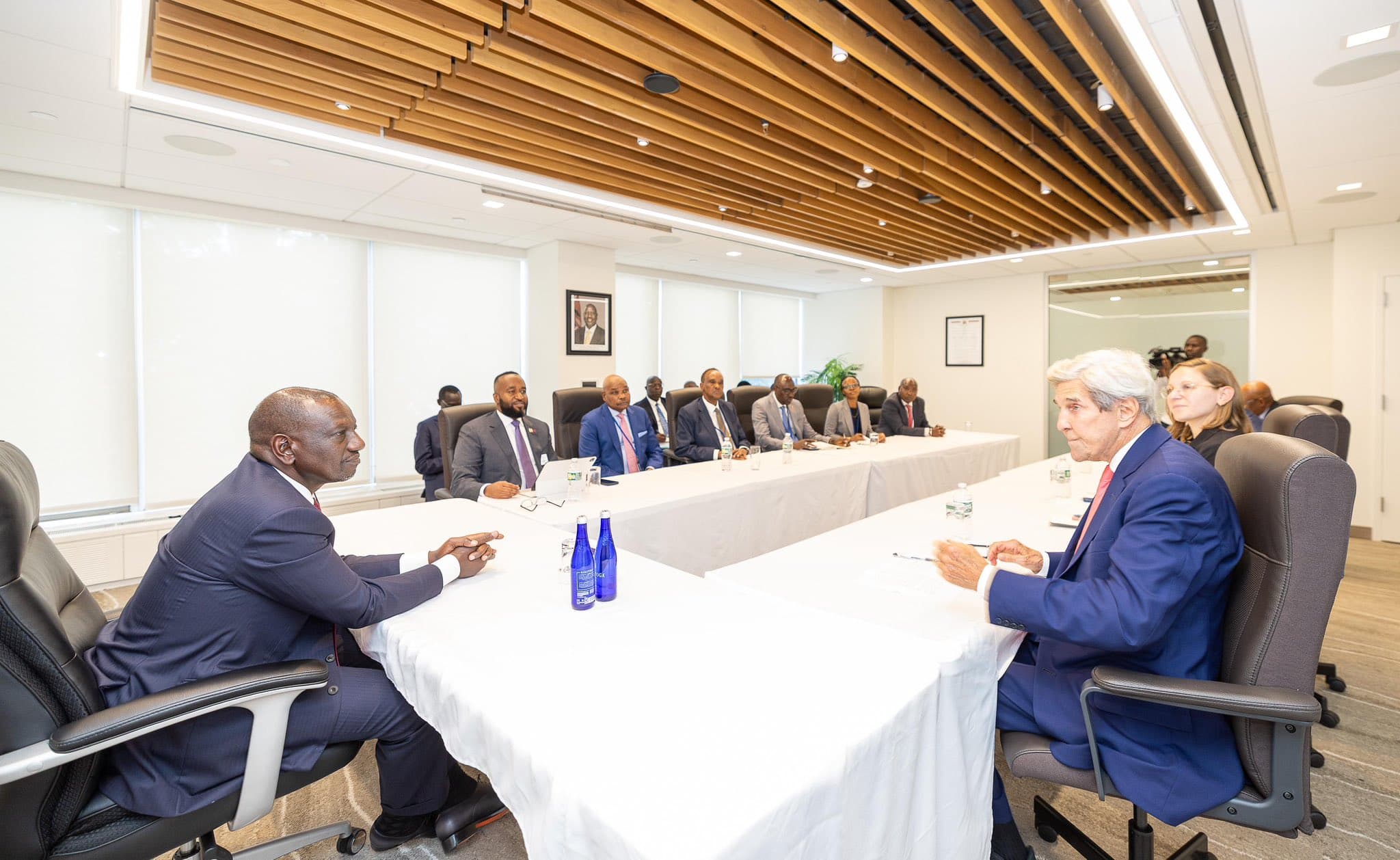We're loading the full news article for you. This includes the article content, images, author information, and related articles.
Kenya has begun active preparations to host the 11th Our Ocean Conference in June 2026—marking the first time the event will be held on African soil—with President William Ruto pledging that the country will drive the global maritime sustainability agenda.

Nairobi, Kenya
Kenya has begun active preparations to host the 11th Our Ocean Conference in June 2026—marking the first time the event will be held on African soil—with President William Ruto pledging that the country will drive the global maritime sustainability agenda.
During a meeting with John Kerry, co-founder of the Our Ocean Conference, President Ruto confirmed Kenya’s intention to host under the theme “Our Ocean, Our Heritage, Our Future.”
The government has signalled that it will leverage the event to spotlight African priorities in ocean conservation, blue economy development, and climate resilience.
Kenya has already initiated foundational steps in planning and coordination as it positions itself to convene global stakeholders—governments, NGOs, academia, and the private sector—for the ocean summit.
The Our Ocean Conference, launched in 2014 by the U.S. Department of State with John Kerry, is a major international platform for catalysing action on marine sustainability.
Over the first ten editions, the conference has yielded more than 2,600 commitments worth over USD 160 billionin pledges across areas like marine protected zones, pollution control, sustainable fisheries, and maritime financing.
By hosting, Kenya—and Africa more broadly—stands to shape global discourse on ocean health, bring continent-specific challenges to the fore, and mobilise investments for marine protection, climate adaptation, and development of the blue economy.
Kenya is deepening institutional capacity and coordination among ministries (Environment, Fisheries, Transport), county governments, and technical agencies to handle logistics, organizing, and thematic programming.
The country is also building on its existing ocean initiatives—such as plastic pollution reduction, marine conservation, and coastal resilience—to showcase them at the conference and attract global partnerships.
Kenya recently joined a global Ocean Centre initiative, slated to be anchored in Mombasa, to further strengthen national capability in blue economy innovation and sustainable ocean governance.
As host, Kenya is expected to design agendas around six critical areas: marine protected areas, sustainable blue economy, climate change, maritime security, sustainable fisheries, and marine pollution.
Opportunities
Elevating Africa’s voice in ocean governance, enabling more tailored global support for coastal and marine nations.
Attracting international funding, partnerships, and technology into African marine sectors.
Legacy effects: improved coastal infrastructure, research capacity, policy frameworks, and regional diplomatic influence.
Challenges
Ensuring seamless logistics for a high-profile global event—venues, security, transport, accommodation.
Coordinating among many national, regional, and local actors with differing priorities and capacities.
Meeting expectations: commitments will require follow-through; failure to deliver after the conference could undermine credibility.
Preventing host bias: Kenya must ensure that thematic and funding outcomes fairly represent the needs of Africa’s diverse coastal nations, not only its own interests.
Keep the conversation in one place—threads here stay linked to the story and in the forums.
Sign in to start a discussion
Start a conversation about this story and keep it linked here.
Other hot threads
E-sports and Gaming Community in Kenya
Active 9 months ago
The Role of Technology in Modern Agriculture (AgriTech)
Active 9 months ago
Popular Recreational Activities Across Counties
Active 9 months ago
Investing in Youth Sports Development Programs
Active 9 months ago